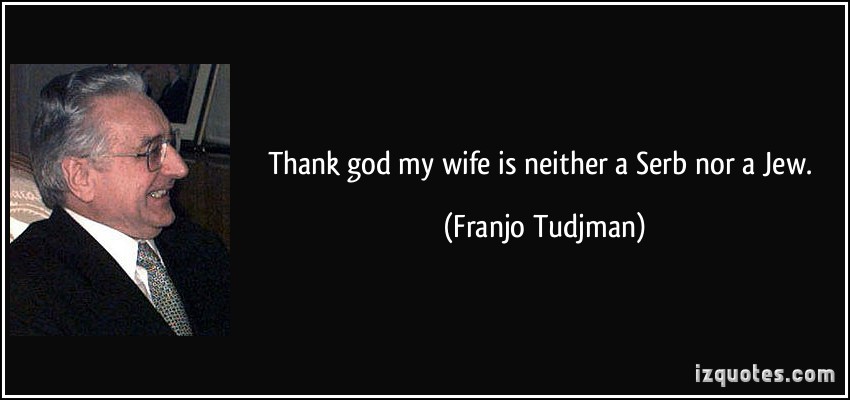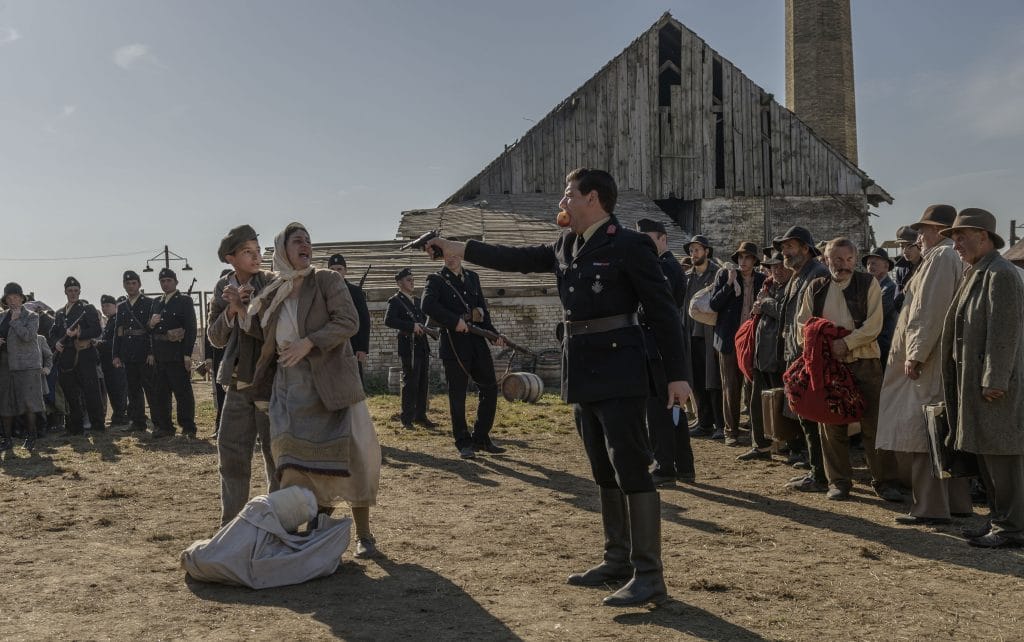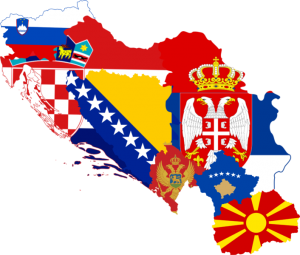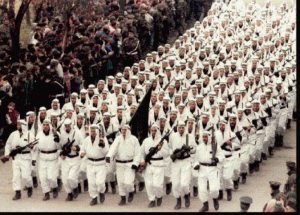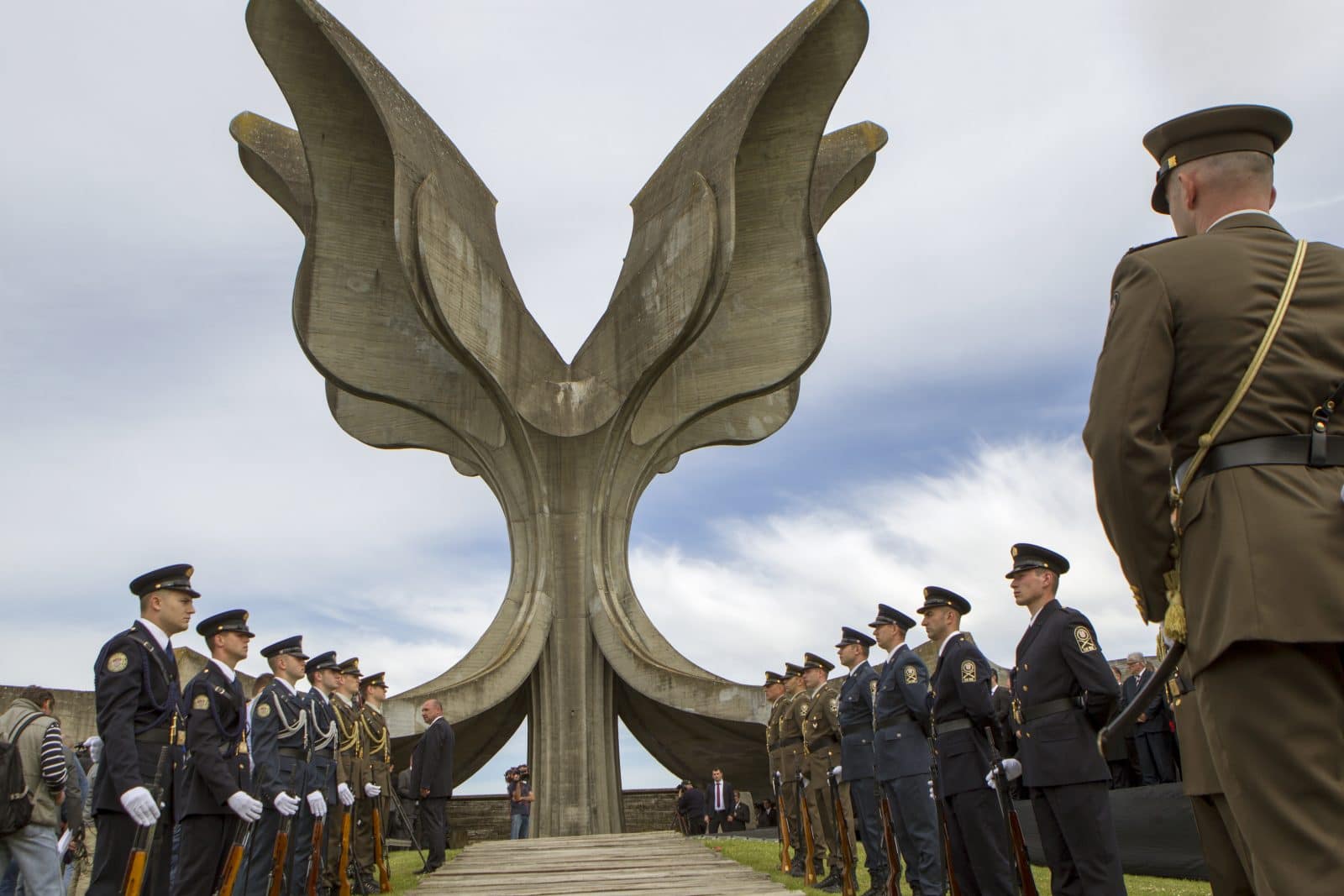
Views: 1756
For the fourth year in a row, representatives of Croatia’s Jewish and Serbian communities, as well as anti-fascists, will boycott the official commemoration of the victims of the World War II concentration camp at Jasenovac on April 14.

But why did the boycotts start in 2016 – why exactly that year? Did it maybe coincide with the Croatian Democratic Union, HDZ, taking power in Croatia?
Is it maybe because the HDZ government, when it came to power, appointed a culture minister called Zlatko Hasanbegovic who once wrote that the Ustasa were martyrs? Or because Hasanbegovic never came clean about what he said (until weekly news magazine Novosti reported on it)? Or because he never apologised?
Was it maybe the fact that the government tolerated the presence of a plaque with the Ustasa chant ‘Za dom spremni’ (‘Ready for the Home(land)’) engraved on it, within walking distance of the former concentration camp, for nine months? Or because the government had to beg an open admirer of the Ustasa, Marko Skejo, leader of the 1990s veterans of the Croatian Defence Forces, the HOS, to allow the authorities to remove the plaque?
Could one of the reasons for the boycott be that government hid behind an expert council which confirmed that the ‘Za dom spremni’ slogan can be used in commemorations of fallen HOS soldiers? Or is it maybe the funeral for Ustasa soldiers with full military honours near Plitvice lakes in September 2018?
Undoubtedly one of the reasons for the continuing boycott could be the fact that the government gave 6,700 euros to the Society for Research of the Threefold Jasenovac Camp, an NGO that distorts the facts about Jasenovac, claiming, without academic basis, that up to 50 times fewer people died there than the Jasenovac Memorial Site has established.
But it could also be because 2,700 euros was given to the Association of Police Veterans from the 1990s war – who have somehow become WWII experts as well – to unscientifically claim that an Ustasa detention camp for children in the town of Jastrebarsko wasn’t a camp at all.

One of the more recent triggers for keeping up the boycott could be the fact that Andrej Rora, the head of HDZ’s media and communications office, wrote for the same pro-Ustasa bulletin as Hasanbegovic, declaring in 1996 that the struggle for the Ustasa-led Independent State of Croatia, NDH, will continue.
The crocodile tears of Croatian President Kolinda Grabar Kitarovic, a former HDZ member, have also started flowing a few years too late.
Grabar Kitarovic now claims that she would attend the official Jasenovac commemoration if there were no divisions. But what prevented her from attending it in 2015, when she avoided the official commemoration but arrived at the site for a publicly-unannounced personal visit, then publicly posted photos and a message about it?
Certainly, descendants of Jasenovac victims didn’t like the fact that she first said that ‘Za dom spremni’ was “an old Croatian salute” before admitting it was a fascist chant.
This is the problem that the HDZ has been facing from the beginning – trying to have its cake and eat it too. The party has been trying to claim that it is anti-fascist – especially in dealings with Israel – while simultaneously trying to rehabilitate the Ustasa.
This is precisely what the founder and Croatian President Franjo Tudjman had in mind back in the 1980s, when he started to promote his controversial version of ‘national reconciliation’ between the Ustasa and the Communist Partisans.
On the one hand, Tudjman claimed – citing problematic sources – that Jews ran the camp, and that Jasenovac continued to operate after WWII, under Communist rule, for which there is no valid historical proof.
While trying to combat Serbian nationalist propaganda that inflated Jasenovac’s death toll, he lowered it to 40,000. To achieve his ‘reconciliation’, he proposed burying the remains of both Ustasa and camp victims at Jasenovac, only to back down under heavy international pressure.
On the other hand, Tudjman accused the Croatian Defence Forces of Ustasa sympathies and wrote anti-fascism into the constitution.
The HDZ is going in Tudjman’s direction, no matter how much it denies this reality. What’s worse, it’s not only the HDZ’s attitude that the Jasenovac victims’ descendants should be angry about.

Former Croatian President Stjepan Mesic, who is now honorary president of the League of Anti-fascist Fighters and Anti-Fascists of Croatia, is widely known for downplaying the Jasenovac crimes while he was casually eating and drinking with HDZ members in Novska in 1992. This wasn’t the only time that Mesic made unacceptable comments about the Ustasa, but it was also problematic that he never came clean about the Novska incident before videos popped up in the media.
Meanwhile in 2001, Tonino Picula, who at the time was the Croatian foreign minister from the then-ruling Social Democratic Party, SDP, ventured into dubious territory when he wanted to make the point that Croatia and Serbia shouldn’t dig up the past too much.
Picula said that Croatia could ask “what preceded Jasenovac”, probably trying to suggest that the pre-war Kingdom of Yugoslavia’s repression was responsible for the WWII killings of Serbs – a common trope among the far-right. Just a few months before, while visiting the Yad Vashem Holocaust memorial in Jerusalem, he didn’t make a similar analogy about Jewish victims.
Then in 2016, when SDP president Zoran Milanovic was talking with 1990s war veterans, he said that he personally didn’t care about the ‘Za dom spremni’ chant.
It was also an SDP politician, State Administration Minister Arsen Bauk, who allowed the obscure Society for Research of the Threefold Jasenovac Camp to be registered as an NGO. Bauk and the 2000-2003 SDP government was further responsible for not pressuring HOS veterans’ associations to remove the words ‘Za dom spremni’ from their coat of arms.
The point is that the majority of politicians honestly don’t care – even when they point out Ustasa crimes. Jasenovac is seen as the place where the ethnic ‘Other’ were killed, not ‘Us’, the Croats.
Although a massive proportion of the Serbs, Roma and Jews who were killed at the camp were living in territories that are now part of Croatia, they are still symbolically seen as ‘guests’.
Even when Jasenovac is commemorated by officials, it’s done out of obligation; a concession to ‘them’. This is something that is done to score political points, both domestically and internationally.
Until Jasenovac is commemorated sincerely and in good faith, without tricks or excuses, no one, not least the government and the political elite, should complain that there are multiple commemorations of the victims every year.
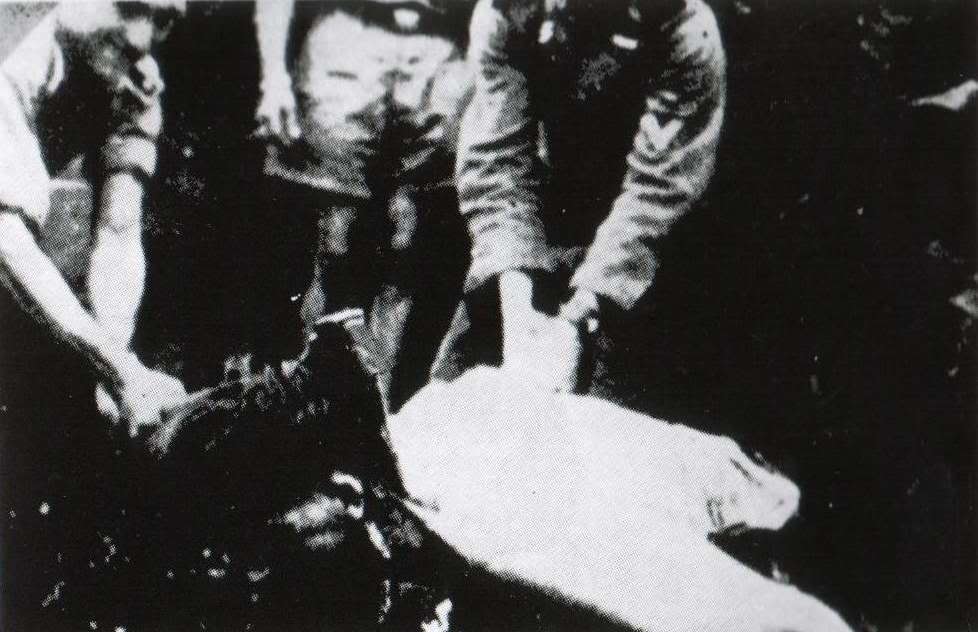
Originally published on 2019-04-11
About the author: Sven Milekic is a Ph.D. candidate at Maynooth University, funded by the Irish Research Council under the Government of Ireland Postgraduate Programme.
Source: Balkan Transitional Justice
Origins of images: Facebook, Twitter, Wikimedia, Wikipedia, Flickr, Google, Imageinjection & Pinterest.
Read our Disclaimer/Legal Statement!
Donate to Support Us
We would like to ask you to consider a small donation to help our team keep working. We accept no advertising and rely only on you, our readers, to keep us digging the truth on history, global politics and international relations.
